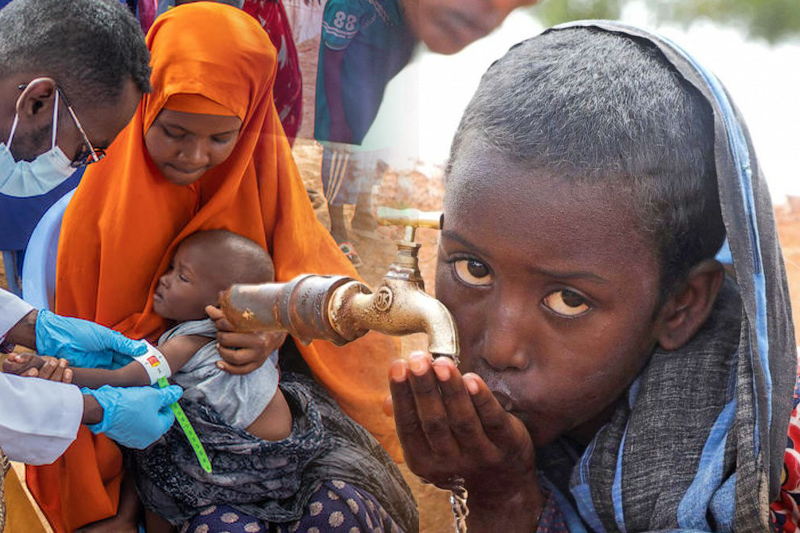
Urgency for global aid to prevent famine crisis in Horn of Africa
United Nations agencies and global humanitarian partners have called for more global solidarity for addressing the Horn of Africa’s rapidly unfolding humanitarian catastrophe. In the region millions of people are going hungry due to two years of unprecedented drought that has brought in chronic food crisis. Humanitarian groups and agencies have been called to urgently prepare to continue their humanitarian work in Ethiopia, Kenya and Somalia, as the longest and most severe drought in recent history might run well into the next year.
A poor start to October-December rains is setting in motion a 5th consecutive season of drought in the #HornofAfrica.
— OCHA Southern & Eastern Africa (@UNOCHA_ROSEA) November 7, 2022
Already, 21M people are going hungry.
We cannot wait for a famine to be declared, or for additional failed rainy seasons, to act.https://t.co/jPP10NPtzq pic.twitter.com/qT4QVumUGl
“Despite the intrinsic uncertainty of rainfall forecasts, there is solid certainty about the urgent need for global support and solidarity to avert a Famine (IPC Phase 5) in the months ahead,” said the partners, referring to the humanitarian classification scale for food insecurity. “Given rising death rates in many areas, the size of the affected population, and the likely duration of the crisis, the cumulative levels of excess mortality could become as high as in 2011. We cannot – and must not – wait for a Famine (IPC Phase 5) to be declared, or for additional rainy seasons to fail, to act,” their statement added.
Keep Reading
The UN partners have stressed that across the Horn of Africa region there has been a surge in cases of severe acute malnutrition, specifically in children. Nearly 7.5 million children under age of five years are estimated to be affected by the malnutrition, including 1.85 million who are facing the most severe form of the condition.
One major problem being faced by the people is access to clean drinking water, thereby exposing them to risk of water borne diseases. Women and children are noted to being forced to travel long distances in search of clean drinking water, further exposing them to violence and exploitation. “The drought impacts on health risks are also significant, and multiple ongoing disease outbreaks, including measles and cholera, for which health outcomes are worse when combined with malnutrition, are major public health concerns,” the statement said.
The situation is expected to worsen due to failed monsoons. “Worryingly, there is a broad consensus across meteorological agencies that the probability of continued below-average rains through the remainder of the season is high, resulting in an unprecedented fifth consecutive poor season,” they noted.



